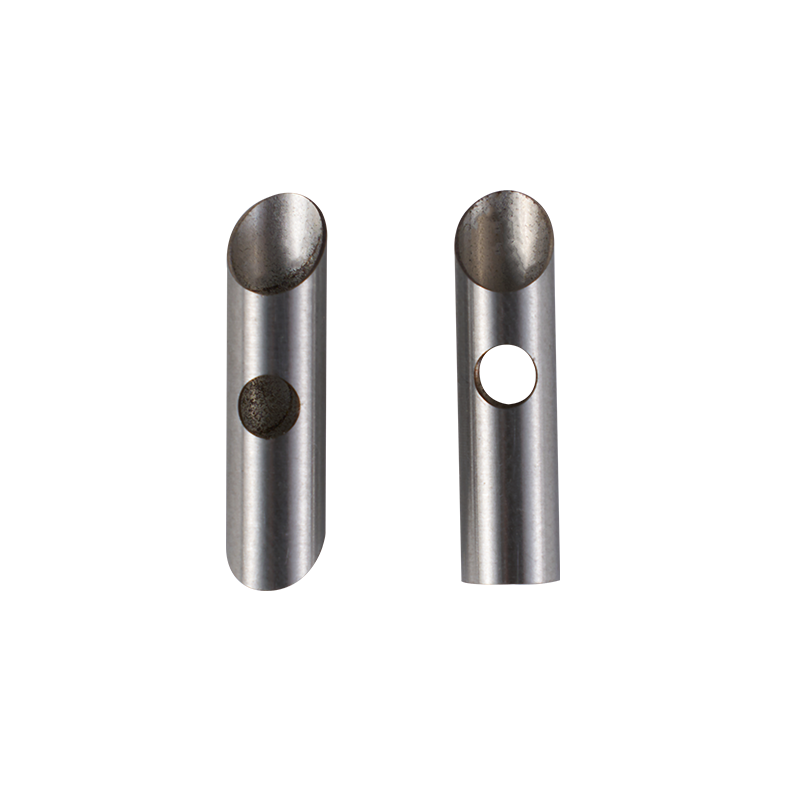+86-0577-86858771
Needles, in their many forms, serve as essential tools across a spectrum of industries, bridging the gap between standardized clinical use and specialized custom applications. Medical needles, refined for precision in healthcare settings, and various fancy needles, engineered for unique industrial and technical tasks, each play distinct roles while sharing a core focus on functionality. Understanding how these tools are designed, manufactured, and applied helps clarify their value in both routine and specialized contexts, ensuring that users can select the right needle for their specific needs.

Clinical-Grade Medical Needles: Design for Safety and Consistency
Medical needles are developed with strict attention to safety, sterility, and patient comfort. Constructed primarily from stainless steel, they offer the necessary strength to penetrate tissue while resisting corrosion—a critical feature given their contact with bodily fluids and frequent sterilization. Medical needles are available in various gauges to match clinical needs: smaller diameters for blood collection and fluid administration when enhanced flow is necessary, and larger diameters for injections where decreased discomfort is beneficial.
The tip design of medical needles is another key consideration. Some needles include additional features, such as retractable mechanisms or safety shields, which are designed to lower the risk of accidental needle sticks, a common concern in healthcare environments. These design elements are standardized to meet regulatory requirements, ensuring consistency across products and reliability in clinical settings. Whether used in hospitals, clinics, or home healthcare, these needles are produced to perform within specific parameters, supporting a range of medical procedures from routine vaccinations to more complex treatments.
Specialized Fancy Needles: Custom Solutions for Unique Applications
Beyond clinical use, specialized fancy needles address the needs of industries requiring non-standard configurations. These needles are designed to perform tasks that fall outside the scope of traditional medical tools, leveraging custom shapes, sizes, and materials to meet specific operational demands. For example, side-hole needles, which feature openings along the shaft rather than just the tip, are used in applications like precision fluid dispensing, allowing for controlled release in hard-to-reach areas. Solid needles, lacking a hollow lumen, find use in tasks such as marking materials or creating small, precise punctures in industrial packaging.
Industrial-grade fancy needles may also be crafted from materials other than stainless steel, depending on the environment in which they operate. For instance, needles used in chemical processing might incorporate corrosion-resistant coatings, while those used in high-temperature settings could be made from heat-resistant alloys. Custom lengths and rigidities are common, with some needles designed to be extra-long for reaching deep into machinery or flexible to navigate curved pathways. These adaptations make fancy needles indispensable in sectors such as manufacturing, textiles, electronics, and research, where off-the-shelf solutions cannot meet the required specifications.
Material Selection: Balancing Function and Environment
The choice of materials for both medical and fancy needles is guided by their intended use. In medical applications, stainless steel remains the primary material due to its biocompatibility—ensuring it does not react with bodily tissues or fluids—and its ability to withstand repeated sterilization. This is crucial, as medical needles must maintain their integrity through processes like autoclaving, which uses high heat and pressure to eliminate pathogens.
For specialized fancy needles, material selection is more varied. In industrial settings, where needles may come into contact with chemicals, adhesives, or high temperatures, materials are chosen for their resistance to these conditions. For example, needles used in the production of electronics might be coated with non-conductive materials to prevent interference, while those used in food processing may be made from materials approved for contact with consumables. Disposable options are also available for applications where cross-contamination is a risk, ensuring that each use starts with a sterile or clean needle.
Applications Across Industries: From Patient Care to Production Lines
In industrial settings, fancy needles support a range of tasks: dispensing adhesives in automotive manufacturing, applying dyes in textile production, or injecting sealants in packaging. In research laboratories, custom needles are used for microscale sample collection or precise material deposition. Even in agriculture, specialized needles find use in tasks like plant tissue sampling or controlled pesticide application. The ability to tailor needle design to specific applications ensures that they remain versatile tools, adapting to the evolving needs of various industries.
Medical needles and specialized fancy needles, through their targeted design and material selection, continue to play vital roles in both clinical and industrial contexts. Their ability to meet standardized requirements in healthcare while adapting to custom needs in other sectors underscores their versatility. As technology advances, these tools will likely see further refinements, but their core purpose—enabling precise, reliable performance—remains constant, making them indispensable across a wide range of applications.
Wenzhou Kangyu Medical TREATMENT
+86-0577-86858771
+86-13957709138
No. 626 Airport Avenue, Longwan District, Wenzhou City, Zhejiang Province, China
Contact Us